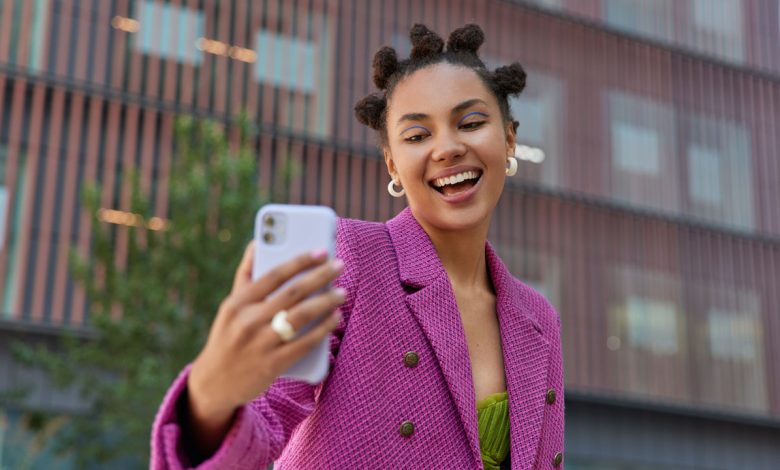AI creates virtual influencers: The rise and challenges

What if you had a friend who was always online, always ready to chat, and always looking fabulous? A friend who could travel the world, wear the latest fashion, and promote your favorite brands. A friend who was not real, but felt real.
You may already have one. Millions of people are following and interacting with virtual influencers: digital characters who have a social media presence and act as if they were real people. They are created by 3D artists using computer-generated imagery (CGI), motion-capture technology, and artificial intelligence (AI) tools. They have personalities, stories, and opinions that are carefully crafted to appeal to a target audience.
Virtual influencers are not new. They have been around since the 1990s, when Kyoko Date debuted in Japan as a virtual pop star. But technology has advanced rapidly, making it possible to create more realistic and interactive digital personas. Some of the most popular ones today are:
- Lil Miquela, a Brazilian-American model and singer with over 3 million followers on Instagram. She posts selfies, videos, and stories of her life in Los Angeles, where she hangs out with her friends, attends events, and supports social causes. She has also released songs on Spotify and YouTube, and has collaborated with brands like Prada, Calvin Klein, and Samsung.
- Shudu, a black supermodel who has been dubbed as the world’s first digital supermodel. She has over 200,000 followers on Instagram, where she showcases her beauty and outfits. She has collaborated with brands like Balmain, Fenty Beauty, and Ellesse, and has appeared on magazines like Vogue and Harper’s Bazaar.
- Blawko, a tattooed bad boy who likes to party and play video games. He has over 150,000 followers on Instagram, where he posts photos and videos of his adventures in Las Vegas, Tokyo, and other places. He is also friends with Lil Miquela and Bermuda, another virtual influencer who is known for her controversial opinions and feuds.
These virtual influencers are not just for entertainment. They are also a powerful marketing tool that can generate buzz, engagement, and revenue for businesses. According to a report by HypeAuditor, virtual influencers have three times more engagement than real influencers on Instagram. They also have lower costs, higher flexibility, and fewer risks than real influencers. They don’t age, they don’t get sick, they don’t have scandals, and they don’t have creative differences with their clients.
For example, Lil Miquela was created by Brud, a Los Angeles-based startup that specializes in creating virtual characters and stories. Brud has raised over $20 million from investors like Sequoia Capital and Spark Capital, and has partnered with brands like Prada and Samsung to create campaigns featuring Lil Miquela. Brud also owns Blawko and Bermuda, who have their own narratives and fan bases.
Another example is Shudu, who was created by Cameron-James Wilson, a British photographer and 3D artist. Wilson initially created Shudu as a personal project to showcase his skills and passion for diversity in fashion. However, after Shudu went viral on social media, Wilson decided to turn her into a business opportunity. He founded The Diigitals, an agency that represents Shudu and other virtual models like Margot and Zhi.
But not everything is rosy in the virtual influencer space. There are also ethical and social issues that arise from these blurred realities. For instance:
- How do we ensure that virtual influencers disclose their artificial nature and avoid deceiving or manipulating their followers? Some virtual influencers are upfront about their digital identity, while others are more ambiguous or secretive. For example, Lil Miquela revealed that she was not human in 2018 after a hacking incident involving Bermuda. However, some of her followers still believe that she is real or partly real. Similarly, Shudu faced backlash when some people accused Wilson of appropriating black culture and exploiting black women’s image.
- How do we protect the rights and interests of the human creators behind them? Some virtual influencers are owned by companies or agencies that have full control over their appearance, personality, content, and partnerships. However, some creators may want to retain some autonomy or ownership over their creations. For example, Wilson said that he would never sell Shudu or let anyone else use her without his permission. He also said that he consults with a team of diverse advisors to ensure that Shudu is respectful and authentic.
- How do we deal with the potential impact of virtual influencers on our self-esteem, body image, and identity? Some virtual influencers are designed to be perfect and flawless, which may create unrealistic and unhealthy expectations for their followers. For example, some studies have shown that exposure to idealized images of beauty can lower self-esteem, increase body dissatisfaction, and trigger eating disorders. Moreover, some virtual influencers may influence our sense of identity and belonging, as we may feel more connected to them than to real people.
These are some of the questions that we need to ask ourselves as we enter a new era of digital influence.
In Conclusion
Virtual influencers are here to stay, and they are changing the way we consume and create content online. They offer us a glimpse into the future of social media, where the real and the virtual coexist in a seamless and immersive way. But they also challenge us to think critically about what we see, what we believe, and what we value in this brave new world.